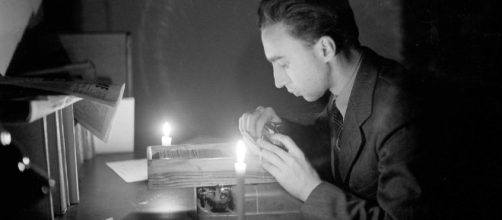George E. Bria witness to Benito Mussolini's death, Germany's surrender in Italy, and who covered the Nuremberg war crimes trials died Saturday at New York City hospital – he was 101. Throughout his illustrious career, Bria was an Associated Press (AP) newsman, news editor, chief U.N. correspondent, and successful gardening columnist.
AP's Executive Editor, Sally Buzbee, described Bria as a multi-talented journalist, and old school professional. Credited for helping generations of journalists cover world news as the senior foreign news editor at AP's New York headquarters, Bria exemplified the best of the AP during his long career.
George Bria - son of Italian immigrants
Bria was raised in Waterbury, Connecticut, earned degrees from Amherst and Middlebury colleges. After completing his education, Bria worked at the Waterbury democrat and Hartford newspapers for four years – where he learned the newspaper business.
Bria retired in 1981 to Westchester County, New York, where he lived with his first wife, Mary, until her death in 1998. His greatest passions, gardening and playing tennis, became a daily routine on his 8-acre Westchester home.
Well into his 90's he competed in the national over-85 tournaments.
Information for his gardening columns, written for the AP from 1989-2002, were taken from his own gardening experience at home.
From his bumper vegetable crops to his wife's flower garden Bria had all the gardening tips and advice he needed for his 200 columns which blended technical advice and his own brand of humor.
As George E. Bria wrote in one of his columns, 'He left his much-loved vegetable garden' as his list of survivors.
The world has lost a great newsman.
George E. Bia 1919-20017 -- a respected writer, editor, columnist and teacher who taught future foreign correspondents to draw on his experience, news writing, and judgment. As Victor L. Simpson put it, George was a great editor, who taught me to read my copy out loud. Bria said, if it sounded good, go with it.

